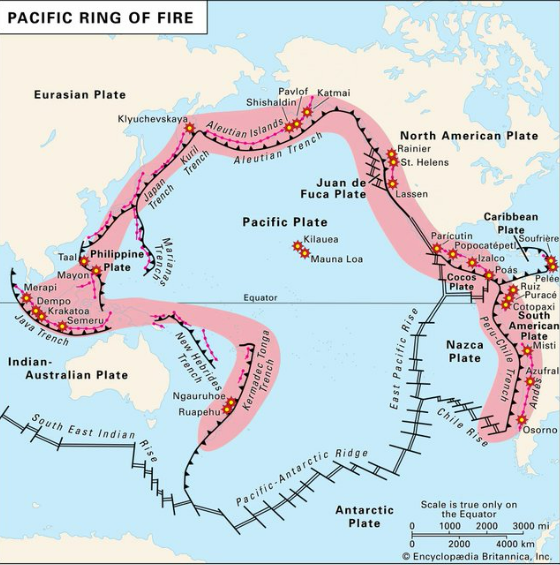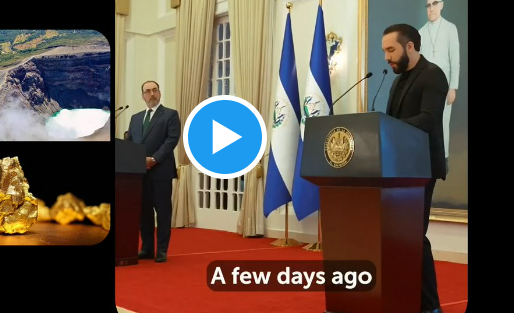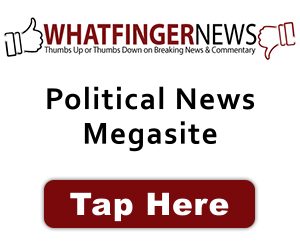President Nayib Bukele revealed that El Salvador has discovered up to $3 TRILLION in unmined gold, and he is now moving quickly to repeal the mining ban regulation so that miners can get to work. “We’ve also found gallium, tantalum, tin, and many other materials needed for the 4th and 5th industrial revolution.” – @nayibbukele Of course, the environmental lunatics are attacking Bukele, saying he shouldn’t do it to protect lakes & rivers from contamination, but they don’t realize the only way to fix the water problem is with the money the gold will bring. Additionally, the amount of jobs and economic growth this will bring to El Salvador will be magnificent. The discovery is a gift from God for the country’s faith and perseverance under the demonic gangs.
President Nayib Bukele revealed that El Salvador has discovered up to $3 TRILLION in unmined gold, and he is now moving quickly to repeal the mining ban regulation so that miners can get to work.
“We’ve also found gallium, tantalum, tin, and many other materials needed for the… pic.twitter.com/i8ddYPPayz
— George (@BehizyTweets) December 6, 2024
Listen to a convo on the situation, on both sides… Much more below

This week President Nayib Bukele claimed that El Salvador has discovered up to $3 TRILLION in gold deposits in her soil BIG if TRUE Especially if we consider the context that El Salvador’s BitCoin savior has reportedly stacked 6,000 bitcoin or roughly $600 million in fiat US dollar value So essentially, El Salvador is praying to mine gold from its ground, which is currently valued 5,000Xs what its paltry bitcoin stack is worth. The world over would want to buy that gold if it is ever mined. Not sure about bitcoin though.
El Salvador has known deposits of gold, and there have been historical and recent explorations for gold mining within the country. – **Historical Context**: Gold mining in El Salvador has been documented since the late 19th century. There was significant interest from international mining companies in the early 2000s, particularly around areas like Cabañas and La Unión where gold deposits were identified. –
**Mining Ban**: In 2017, El Salvador became the first country in the world to impose a blanket ban on metal mining, primarily to protect its water resources from the environmental damage often associated with mining operations. This ban was a response to concerns about pollution, water contamination, and community health risks. – **Recent Developments**: Despite the ban, there have been discussions and proposals regarding the potential for mining. President Nayib Bukele has expressed interest in exploring El Salvador’s mineral resources, particularly gold, suggesting that there might be significant deposits that could economically benefit the country if mined sustainably.
El Salvador’s Potential Gold Rush: Economic Boon or Environmental Disaster?
This briefing doc analyzes the potential implications of exploiting El Salvador’s recently revealed gold reserves, drawing upon President Nayib Bukele’s pronouncements and the opposing viewpoint of the Catholic Church.
Bukele’s Vision: A “Rebirth” Fueled by Gold
President Bukele, enjoying significant popularity for his crackdown on gangs and resultant decrease in homicides, has unveiled what he believes to be a transformative opportunity for El Salvador: vast gold reserves estimated at three trillion dollars, or “more than 8,000 percent of GDP.”
Bukele argues that responsibly exploiting these resources, along with other minerals like cobalt, nickel, and lithium, could catapult the nation’s economic development, even envisioning areas of El Salvador mirroring the prosperity of Qatar. He emphasizes that mining would only affect less than 1% of the territory, stating:
“I know we have to develop the country. The mines are less than 1 percent of the territory. They are not right next to our houses. It will not disturb anyone.”
He frames this potential gold rush as a divine gift, declaring on X (formerly Twitter), “God placed a giant treasure under our feet.” This wealth, he asserts, can be harnessed sustainably to benefit the Salvadoran people.

The Catholic Church: A Voice of Caution
In stark contrast, the Catholic Church, a powerful institution in El Salvador, raises serious concerns about the environmental and social repercussions of mining. Archbishop José Luis Escobar Alas vehemently opposes repealing the 2017 mining ban, stating unequivocally:
“They say today that there is mining that doesn’t harm the environment. It’s a lie. It’s all a lie. All mining damages the environment. All without exception.”
The Archbishop argues that multinational mining companies leave behind minimal benefits while inflicting “irrevocable damage” to the environment and people’s lives. He cites concerns about deforestation, erosion, soil degradation, and, most importantly, the contamination of air and water – a critical issue in a small, arid nation already grappling with resource scarcity.
The Central American bishops echo these concerns, urging governments to prioritize human life and the environment over short-term economic gains from mining.
Key Points of Contention:
- Economic Potential vs. Environmental Risks: Bukele emphasizes the transformative economic potential of mining, while the Church highlights the inevitable environmental damage, questioning the sustainability claims.
- Distribution of Benefits: The Archbishop criticizes the historical exploitation by mining companies, questioning the equitable distribution of benefits to the Salvadoran people.
- Political Will: Bukele’s popularity and control of Congress make the repeal of the mining ban likely, despite opposition from the Church and potential for conflict with civil society groups.
Conclusion:
The discovery of substantial gold reserves in El Salvador presents a complex dilemma with significant economic and environmental implications. While the potential for economic growth is undeniable, the Catholic Church’s warnings about environmental damage and exploitation cannot be ignored. The debate over mining will likely intensify, with the future of El Salvador’s environment and the well-being of its people hanging in the balance.









[…] A Gold Rush Is About to Begin: El Salvador Finds MASSIVE Gold and Other Resources Untapped. The Left… […]
[…] Salvador has found “trillions of dollars of gold”, what comes next? – Link – Bukele on El Salvador’s Mining […]